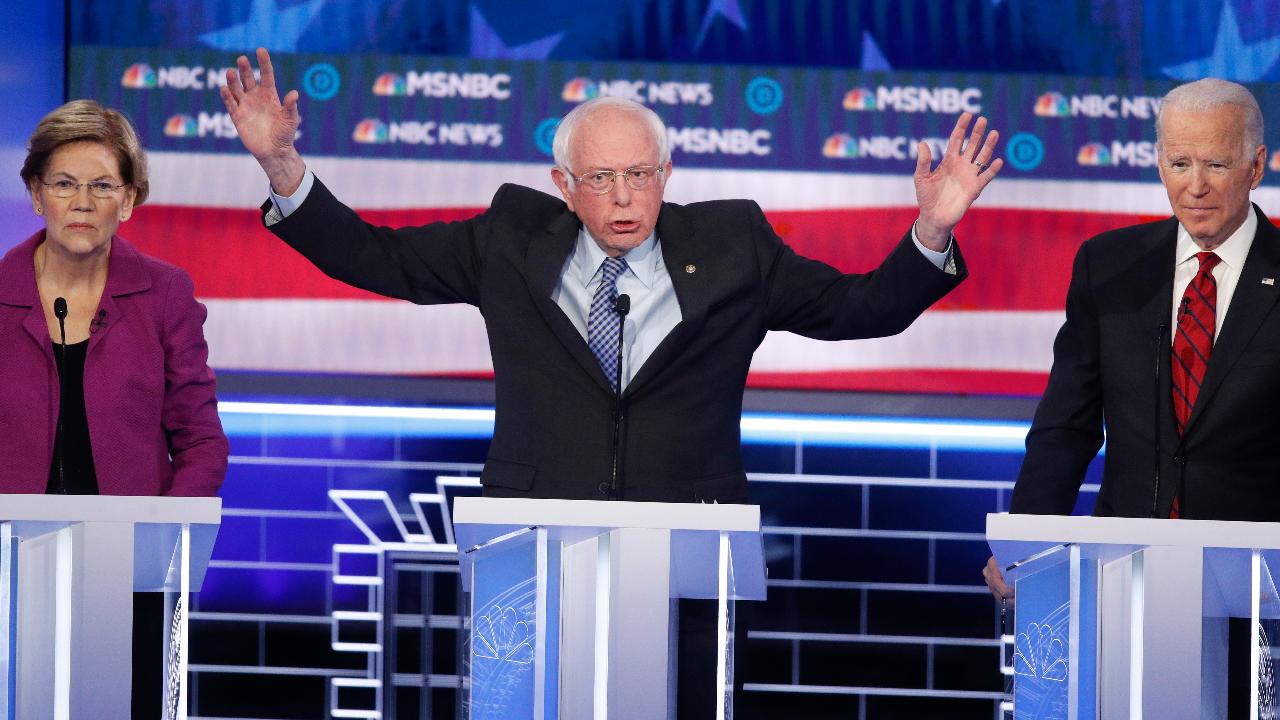Bloomberg plotting to block Sanders nomination with brokered convention strategy
Bloomberg is preparing for the possibility of a contested convention by lobbying officials and donors allied with his centrist rivals
With muddled results in Iowa and New Hampshire killing any hopes of the quick consolidation of a Democratic nominee to face off against President Trump, and an unprecedented eight candidates still competing in the primary, it’s possible the nominating contest could end in the first contested convention in decades.
It’s an outcome that Mike Bloomberg is preparing for by privately lobbying Democratic Party officials and donors allied with his moderate rivals to flip their allegiance to him, effectively blocking the nomination of Bernie Sanders, according to Politico.
Politico, citing two Democratic strategists familiar with the talks and unaffiliated with Bloomberg’s presidential campaign, reported that the outreach has involved meetings and phone calls with supporters of former Vice President Joe Biden and Pete Buttigieg, the former South Bend, Indiana, mayor, as well as uncommitted DNC members in Virginia, Texas, Florida, Oklahoma and North Carolina.
AFTER BLOOMBERG BOMBS IN DEBATE DEBUT, WILL IT SINK HIM?
Sanders, the Vermont senator and self-avowed democratic socialist, has emerged as the party’s frontrunner in recent weeks after back-to-back victories in Iowa (he won the popular vote, and lost by one delegate to Buttigieg) and New Hampshire propelled him to a commanding double-digit lead in multiple national polls. But Sanders’ rise has alarmed the moderate wing of the Democratic Party, who increasingly see the anti-establishment candidate building an “insurmountable” delegate lead on Super Tuesday, March 3, when 14 states cast their ballots.
"If Biden, Buttigieg and Klobuchar remain in the race despite having no path to appreciably collecting super delegates on Super Tuesday (and beyond), they will propel Sanders to a seemingly insurmountable delegate lead by siphoning votes away from [Bloomberg]," an internal Bloomberg campaign memo dated Feb. 17 read.
Bloomberg entered the race too late to participate in the four early-voting states and is so far untested. But his free-spending campaign -- he’s nearing $500 million -- has propelled him to third place nationally, according to an aggregate of polls by RealClearPolitics, and heightened the odds of a brokered convention as he further splits the race.
BLOOMBERG CAMP WARNS SANDERS 'IMPOSSIBLE TO STOP,' UNLESS BIDEN, KLOBUCHAR, BUTTIGIEG BOW OUT
All of the candidates have pledged to compete through at least Super Tuesday, when roughly one-third of the delegates that are needed to secure the nomination are awarded.
"If this number of candidates sticks around and through Super Tuesday and March 10, it just becomes almost a mathematical certainty that no one can claim a majority of delegates by July. It's just math,” Addisu Demissie, who managed the presidential campaign of Sen. Cory Booker of New Jersey, told NBC News recently.
Bloomberg’s campaign did not immediately respond to a request for comment, but a spokesperson told Politico that they are “constantly reaching out to all types of people for support and to explain why we think Mike is the best candidate to take on Donald Trump."
After new changes to party rules following the 2016 election, which prohibited superdelegates, or automatic delegates, from voting on the first ballot of a contested convention (meaning they will only get to weigh in if no candidates earn a majority of delegates from voters), 2020 campaigns have been courting superdelegates preparing for such a scenario.
BLOOMBERG'S UNPRECEDENTED SPENDING SPREE TOPS $460M AHEAD OF SUPER TUESDAY
If Sanders or another candidate fails to amass the 1,991 delegates necessary to clinch the nomination on the first ballot, superdelegates could prove pivotal. During the Democratic debate in Nevada on Wednesday night, candidates addressed the possibility of a dragged out, uncertain race. Sanders insisted the nominee should be the “person who has the most votes.”
But Bloomberg, who was hammered by progressives and centrists during the debate, his first since entering the race, suggested convention rules should dictate the outcome.
“Whatever the rules of the Democratic Party are, they should be followed,” he said.




















